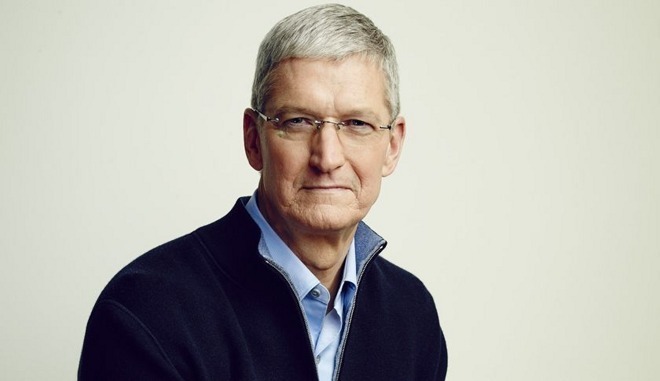Apple CEO Tim Cook is on the guest list for China's fourth annual World Internet Conference, a state-sponsored gathering at which attendees will discuss the future of the country's strict cyberspace policy.

According to The Wall Street Journal, Cook is the most prominent executive from a U.S. company to attend the meeting scheduled for Sunday in Wuzhen.
Cook's willingness to participate in the conference sponsored by the Cyberspace Administration of China underscores the country's importance to Apple. China sales represent a significant portion of Apple's bottom line, though revenue from the region has been waning over the past few quarters.
Joining Cook at the conference are top executives from foreign technology companies including Google CEO Sundar Pichai, Facebook VP Vaughan Smith and LinkedIn co-founder Allan Blue. Executives from domestic tech firms like Alibaba's Jack Ma and Tencent's Pony Ma are also slated to attend.
According to the conference's website, participants will take part in a range of discussions including international efforts toward combating criminal activity and terrorism on the internet, internet economies, artificial intelligence and more. A closed-door meeting set for Dec. 5 will cover cybersecurity concerns.
"China's power will contribute to the governance of the global internet," Ren Xianliang, deputy director of the Cyberspace Administration of China said at a press conference last month, according to the WSJ. "We will show the world China's plan of jointly building a cyberspace community that shares a common destiny."
Cook most recently met with Chinese President Xi Jinping in October as part of an advisory board meeting for Tsinghua University's School of Economics and Management. Also present at that event was Facebook CEO Mark Zuckerberg.
Though Apple's hardware products are faring well in China, the company's software and services, particularly certain apps distributed through the App Store, have been a bone of contention for government agencies.
China's strict cybersecurity, internet surveillance and online censorship policies have caused problems for Apple in the recent past.
In January, the company yanked the New York Times app from its regional Chinese App Store at the government's behest. Then in July, Apple removed a number of VPN apps from the iOS App Store to comply with Chinese regulations. Most recently, Apple was forced to pull Microsoft's Skype from its various app stores.


